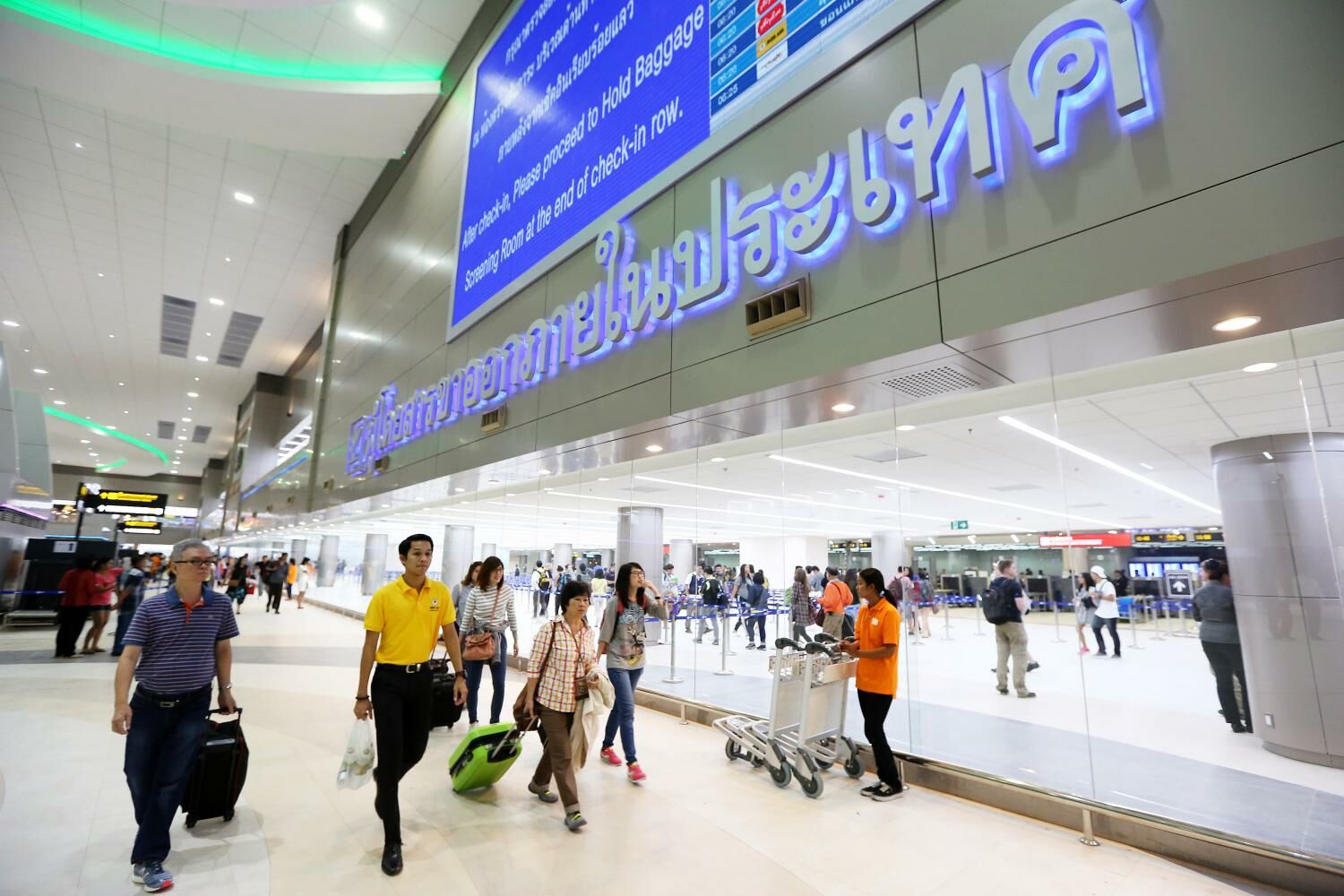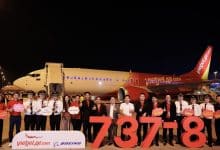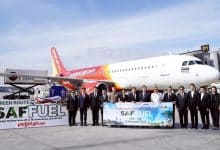Thai Vietjet’s foreign pilot plan under scrutiny by AirAsia executive

The Airlines Association of Thailand (AAT) deemed Thai Vietjet’s request to allow foreign pilots to fly domestic routes via a wet lease arrangement as acceptable, citing its temporary nature. However, an AirAsia executive has expressed strong opposition to this proposal.
AAT President Puttipong Prasarttong-Osoth says he sees the wet lease arrangements as a win-win situation, as airlines can temporarily increase flight capacity to meet passenger demand whenever they want.
Thai Vietjet initiated discussions with the Employment Department, the Civil Aviation Authority of Thailand (CAAT), and the Thai Pilots Association two months ago, seeking permission for foreign pilots to operate domestic routes under wet lease agreements for two aircraft. These contracts include a package of pilots, crew, maintenance, and insurance.
Given that domestic routes are traditionally reserved for Thai pilots under labour laws, this arrangement requires government approval.
Puttipong stated that the association does not oppose the plan if government officials approve it, as each airline should manage its own business. He noted that the current issue in the aviation sector is an aircraft shortage, not a pilot shortage.
He explained that dry leasing, which does not include foreign pilots or crew, obliges airlines to operate the aircraft for five to six years. In contrast, a wet lease requires only three to six months, offering more flexibility and minimal impact on the pilot job market.
Wet lease
Puttipong, who is also president of Bangkok Airways, revealed that the airline plans to lease two aircraft, either Airbus A319s or A320s, via a wet lease arrangement for four to five months during the high season. This would be in addition to the 23 aircraft already in its fleet. To avoid complications, the airline will use these aircraft for international routes, such as Phnom Penh, Siem Reap, and Luang Prabang.
Next year, Bangkok Airways intends to add more A319 aircraft to its fleet.
An anonymous executive from Thai Vietjet mentioned that the request has not yet been approved by the Labour Ministry, but the airline hopes to finalise the proposal by the end of the month.
The executive indicated that while Thai Vietjet’s 18-strong fleet might suffice for the entire year, it may not meet the high demand during the peak season. Wet leasing is seen as a viable solution, especially since European carriers, with lower aircraft utilisation rates during their winter low season, can easily match such deals.
The domestic routes for the wet leased aircraft would include Chiang Mai, Krabi, and Phuket.
Thai Vietjet’s plan to increase its capacity next year includes temporarily importing pilots, which should not have a long-term impact on the pilot job market.
Tassapon Bijleveld, Executive Chairman of Asia Aviation, the majority shareholder of Thai AirAsia, voiced strong opposition to the idea of allowing foreign pilots to fly domestic flights. He also noted that this issue has not been discussed in AAT meetings.
He emphasised that while airlines have the right to implement this measure, Thai AirAsia does not have a policy to follow this approach, reported Bangkok Post.
“It’s up to other airlines to do so [permitting foreign pilots to fly domestic flights]. But, personally, I disagree with this idea. Thai AirAsia also won’t follow suit.”
On October 7, AAT and CAAT hosted the Thai Aviation Sustainability Day 2024 forum, which saw participation from over 300 attendees from the aviation and energy sectors. CAAT plans to mandate all airlines to use sustainable aviation fuel for 1% of their total consumption by 2026.
Latest Thailand News
Follow The Thaiger on Google News:


























